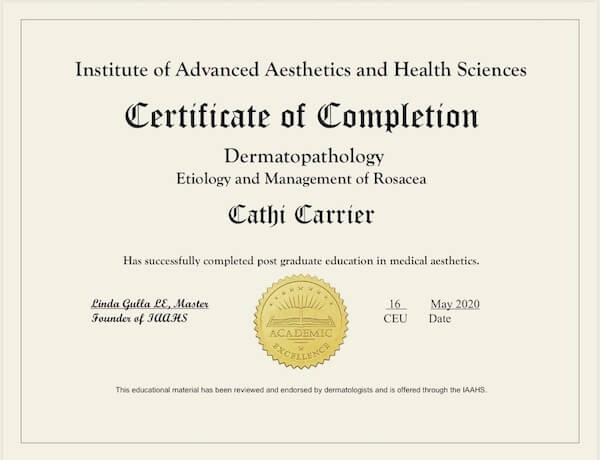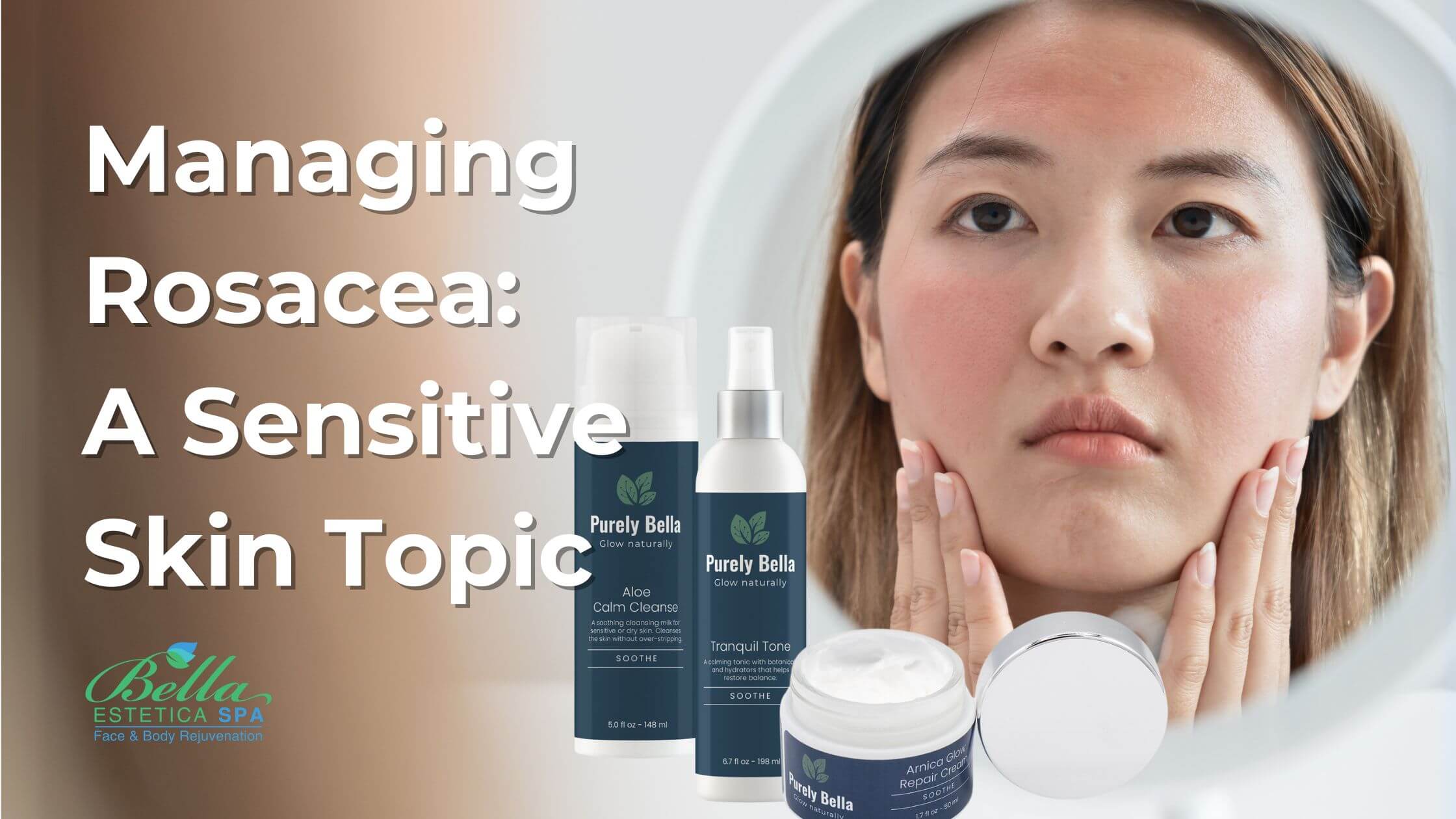Rosacea is a chronic skin condition characterized by redness, flushing, and visible blood vessels on the face. It can also cause pimples, swelling, and thickening of the skin over time. While there is no cure for rosacea, there are ways to manage and care for your skin to help minimize symptoms and flare-ups. The first step in caring for rosacea skin is to identify and avoid triggers that can cause flare-ups. Common triggers can include: 1. Spicy foods Keeping a diary can help you track your triggers so you can avoid them in the future. When it comes to rosacea, less is more. Gentle, non-abrasive skin care products are best for people with rosacea. Look for products that are labeled hypoallergenic or for sensitive skin. Avoid products with alcohol, fragrance, or harsh chemicals. 1. Cleanser: Use a gentle, non-foaming cleanser to avoid stripping the skin of its natural oils. Look for ingredients like aloe vera and chamomile, which have anti-inflammatory properties. Some studies suggest that certain supplements may help reduce inflammation and improve rosacea symptoms. Always consult with your doctor before starting any new supplements, as they may interact with other medications you are taking. In addition to these tips, it’s important to be gentle with your skin. Avoid using harsh scrubs or exfoliants, and pat your skin dry instead of rubbing it. With proper care and management, most people with rosacea can keep their symptoms under control.
Diving into an essential topic for those with sensitive skin: Managing Rosacea.
Understanding Triggers
2. Hot beverages
3. Alcohol
4. Extreme temperatures (hot or cold)
5. Sun exposure
6. Stress
7. Strong winds
8. Harsh skin care products
9. Certain medications
10. Physical exertionChoosing the Right Skincare Products
2. Moisturizer: Choose a moisturizer that is lightweight and non-comedogenic (won t clog pores). Look for ingredients like ceramides, hyaluronic acid, and niacinamide, which can help repair and strengthen the skin barrier.
3. Sunscreen: Sun exposure is a common trigger for rosacea. Use a broad-spectrum sunscreen with an SPF of 30 or higher every day, even on cloudy days. Look for physical sunscreens that contain zinc oxide or titanium dioxide, which are less irritating than chemical sunscreens.
4. Makeup: If you wear makeup, choose products that are labeled non-comedogenic and oil-free. Avoid using heavy foundations, as they can clog pores and aggravate rosacea.Considering Supplements
1. Omega-3 fatty acids: These healthy fats have anti-inflammatory properties and may help improve skin health. Sources include fish oil, flaxseed oil, and chia seeds.
2. Probiotics: Probiotics are live bacteria and yeasts that are beneficial for gut health. Some studies suggest they may also have a positive impact on skin conditions such as rosacea.
3. Turmeric: This spice has anti-inflammatory properties and may help reduce redness and inflammation in the skin. It can be taken as a supplement or used topically as a mask.
Visit Bella Estetica for our Rosacea Facial Treatment with LED light therapy and Bella Estetica’s own sensitive skincare line specifically created for the treatment of rosacea!
Sign up for our Blog Newsletter for discount codes, monthly specials, blog updates and more tips & insights on healthy, radiant skin.
Managing Rosacea: A Sensitive Skin Topic

11
Jun






